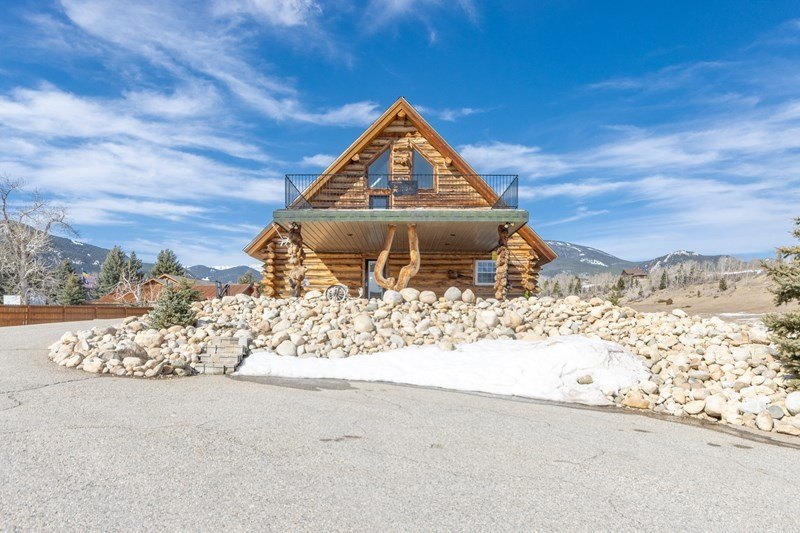
You should take into account several factors when searching for a multifamily mortgage loan. These factors include the downpayment, interest rate, as well as other financing options. This article will explain the rates and down payment requirements for these types of loans. After you have the information you need, you can make an informed decision about which mortgage loan is best for you.
Multi-family mortgage rates
The interest rate on a multi-family mortgage loan is affected by many factors. These loans generally have higher reserves requirements than conventional loans. Multifamily loans come with a greater risk. Multifamily loans are a better option for buyers.
Traditional FHA mortgages allow borrowers to buy multifamily properties with up to four units. The program's benefits include a low down payment, and a lower interest rates. There are also lower requirements and a lower DTI.

Requirements for down payment
The requirements for multi-family mortgage loans vary depending upon the type of property. A three-unit multifamily home may require 20% down payment while a 2-unit property might require only 5%. In addition, banks may have different guidelines for how much down payments are required for multifamily properties.
Although the down payment for multi-family properties requires a higher down payment than single-family houses, you can still get approved with low down payments. There are a few programs that require as little as five percent down, and some lenders may allow as little as zero down. Programs that allow you use the downpayment of a relative or parent in order to finance a part of your mortgage can also be found.
Requirements for interest rates
Before applying for a multi-family mortgage loan, there are several things you need to do. Pre-qualification refers to a review of your assets, income, credit score and credit history. For most lenders to approve a loan, you will need a score of at minimum 620.
Alternative financing options
There are some challenges associated with alternative financing. These include limited documentation, a dearth of data on the effectiveness and wide-ranging differences in the types, available financing options, as well as a lack thereof. The inability to conduct research can prevent policymakers from properly assessing the benefits and harms associated with alternative financing.

Private equity, online marketplaces, and debt funds are some of the alternatives to multifamily mortgage loan financing. Private equity funds often finance commercial real estate transactions. These funds combine the capital of several investors to provide equity or debt financing to borrowers. This type financing is not appropriate for all circumstances and requires careful research.
FAQ
What should you consider when investing in real estate?
First, ensure that you have enough cash to invest in real property. If you don’t have the money to invest in real estate, you can borrow money from a bank. You also need to ensure you are not going into debt because you cannot afford to pay back what you owe if you default on the loan.
Also, you need to be aware of how much you can invest in an investment property each month. This amount must include all expenses associated with owning the property such as mortgage payments, insurance, maintenance, and taxes.
You must also ensure that your investment property is secure. It would be a good idea to live somewhere else while looking for properties.
Do I need flood insurance
Flood Insurance protects from flood-related damage. Flood insurance protects your belongings and helps you to pay your mortgage. Find out more about flood insurance.
How do I get rid termites & other pests from my home?
Your home will be destroyed by termites and other pests over time. They can cause serious destruction to wooden structures like decks and furniture. To prevent this from happening, make sure to hire a professional pest control company to inspect your home regularly.
What is a reverse loan?
A reverse mortgage is a way to borrow money from your home without having to put any equity into the property. You can draw money from your home equity, while you live in the property. There are two types to choose from: government-insured or conventional. If you take out a conventional reverse mortgage, the principal amount borrowed must be repaid along with an origination cost. FHA insurance covers your repayments.
What are the three most important things to consider when purchasing a house
Location, price and size are the three most important aspects to consider when purchasing any type of home. Location refers to where you want to live. Price refers to what you're willing to pay for the property. Size refers to the space that you need.
Can I buy my house without a down payment
Yes! Yes. These programs include government-backed mortgages (FHA), VA loans and USDA loans. More information is available on our website.
How long does it take to sell my home?
It all depends on several factors such as the condition of your house, the number and availability of comparable homes for sale in your area, the demand for your type of home, local housing market conditions, and so forth. It may take up to 7 days, 90 days or more depending upon these factors.
Statistics
- Private mortgage insurance may be required for conventional loans when the borrower puts less than 20% down.4 FHA loans are mortgage loans issued by private lenders and backed by the federal government. (investopedia.com)
- The FHA sets its desirable debt-to-income ratio at 43%. (fortunebuilders.com)
- When it came to buying a home in 2015, experts predicted that mortgage rates would surpass five percent, yet interest rates remained below four percent. (fortunebuilders.com)
- Some experts hypothesize that rates will hit five percent by the second half of 2018, but there has been no official confirmation one way or the other. (fortunebuilders.com)
- Over the past year, mortgage rates have hovered between 3.9 and 4.5 percent—a less significant increase. (fortunebuilders.com)
External Links
How To
How to Manage a Rental Property
Renting your home can be a great way to make extra money, but there's a lot to think about before you start. We'll help you understand what to look for when renting out your home.
If you're considering renting out your home, here's everything you need to know to start.
-
What should I consider first? Before you decide if your house should be rented out, you need to examine your finances. If you are in debt, such as mortgage or credit card payments, it may be difficult to pay another person to live in your home while on vacation. You should also check your budget - if you don't have enough money to cover your monthly expenses (rent, utilities, insurance, etc. It might not be worth the effort.
-
How much does it cost to rent my home? There are many factors that influence the price you might charge for renting out your home. These include things like location, size, features, condition, and even the season. It's important to remember that prices vary depending on where you live, so don't expect to get the same rate everywhere. Rightmove shows that the median market price for renting one-bedroom flats in London is approximately PS1,400 per months. This would translate into a total of PS2,800 per calendar year if you rented your entire home. That's not bad, but if you only wanted to let part of your home, you could probably earn significantly less.
-
Is it worth it? Doing something new always comes with risks, but if it brings in extra income, why wouldn't you try it? Make sure that you fully understand the terms of any contract before you sign it. You will need to pay maintenance costs, make repairs, and maintain the home. Renting your house is not just about spending more time with your family. Make sure you've thought through these issues carefully before signing up!
-
What are the benefits? It's clear that renting out your home is expensive. But, you want to look at the potential benefits. You have many options to rent your house: you can pay off debt, invest in vacations, save for rainy days, or simply relax from the hustle and bustle of your daily life. Whatever you choose, it's likely to be better than working every day. And if you plan ahead, you could even turn to rent into a full-time job.
-
How can I find tenants Once you decide that you want to rent out your property, it is important to properly market it. Make sure to list your property online via websites such as Rightmove. Once potential tenants reach out to you, schedule an interview. This will allow you to assess their suitability, and make sure they are financially sound enough to move into your house.
-
How can I make sure that I'm protected? You should make sure your home is fully insured against theft, fire, and damage. You will need to insure the home through your landlord, or directly with an insurer. Your landlord will usually require you to add them as additional insured, which means they'll cover damages caused to your property when you're present. If you are not registered with UK insurers or if your landlord lives abroad, however, this does not apply. In this case, you'll need to register with an international insurer.
-
If you work outside of your home, it might seem like you don't have enough money to spend hours looking for tenants. You must put your best foot forward when advertising property. Post ads online and create a professional-looking site. It is also necessary to create a complete application form and give references. Some people prefer to do the job themselves. Others prefer to hire agents that can help. Interviews will require you to be prepared for any questions.
-
What happens once I find my tenant If you have a current lease in place you'll need inform your tenant about changes, such moving dates. If this is not possible, you may negotiate the length of your stay, deposit, as well as other details. You should remember that although you may be paid after the tenancy ends, you still need money for utilities.
-
How do you collect the rent? When the time comes to collect the rent, you'll need to check whether your tenant has paid up. You'll need remind them about their obligations if they have not. Any outstanding rents can be deducted from future rents, before you send them a final bill. If you're having difficulty getting hold of your tenant you can always call police. If there is a breach of contract they won't usually evict the tenant, but they can issue an arrest warrant.
-
How can I avoid problems? Although renting your home is a lucrative venture, it is also important to be safe. Consider installing security cameras and smoke alarms. Also, make sure you check with your neighbors to see if they allow you to leave your home unlocked at night. You also need adequate insurance. You should not allow strangers to enter your home, even if they claim they are moving in next door.